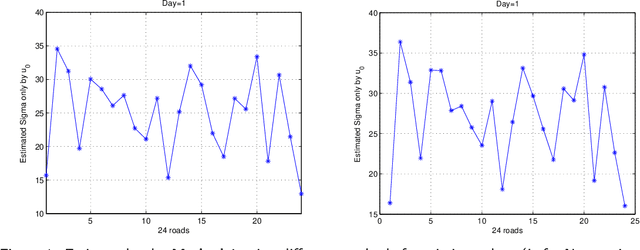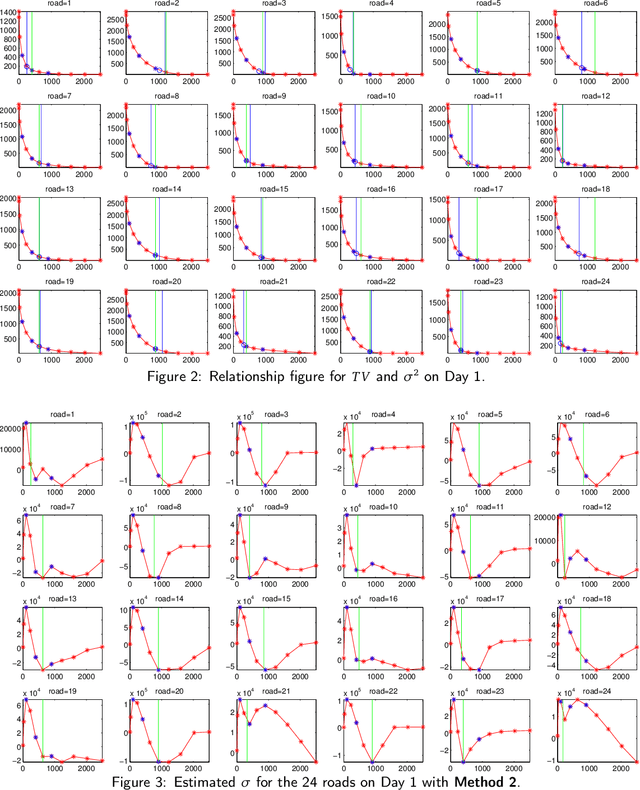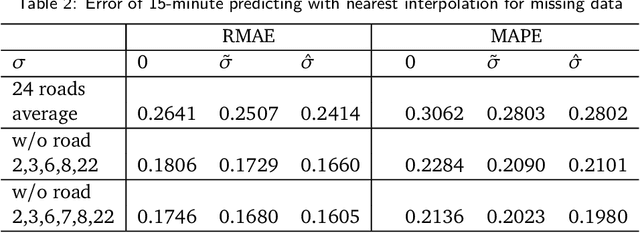Application of Bounded Total Variation Denoising in Urban Traffic Analysis
Paper and Code
Aug 04, 2018



While it is believed that denoising is not always necessary in many big data applications, we show in this paper that denoising is helpful in urban traffic analysis by applying the method of bounded total variation denoising to the urban road traffic prediction and clustering problem. We propose two easy-to-implement methods to estimate the noise strength parameter in the denoising algorithm, and apply the denoising algorithm to GPS-based traffic data from Beijing taxi system. For the traffic prediction problem, we combine neural network and history matching method for roads randomly chosen from an urban area of Beijing. Numerical experiments show that the predicting accuracy is improved significantly by applying the proposed bounded total variation denoising algorithm. We also test the algorithm on clustering problem, where a recently developed clustering analysis method is applied to more than one hundred urban road segments in Beijing based on their velocity profiles. Better clustering result is obtained after denoising.
 Add to Chrome
Add to Chrome Add to Firefox
Add to Firefox Add to Edge
Add to Edge